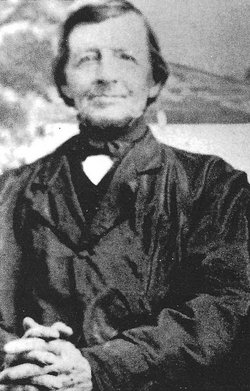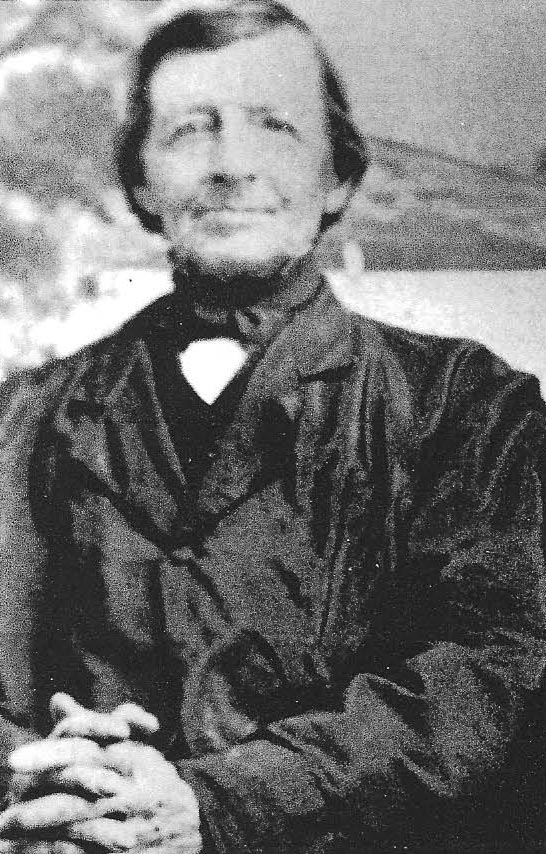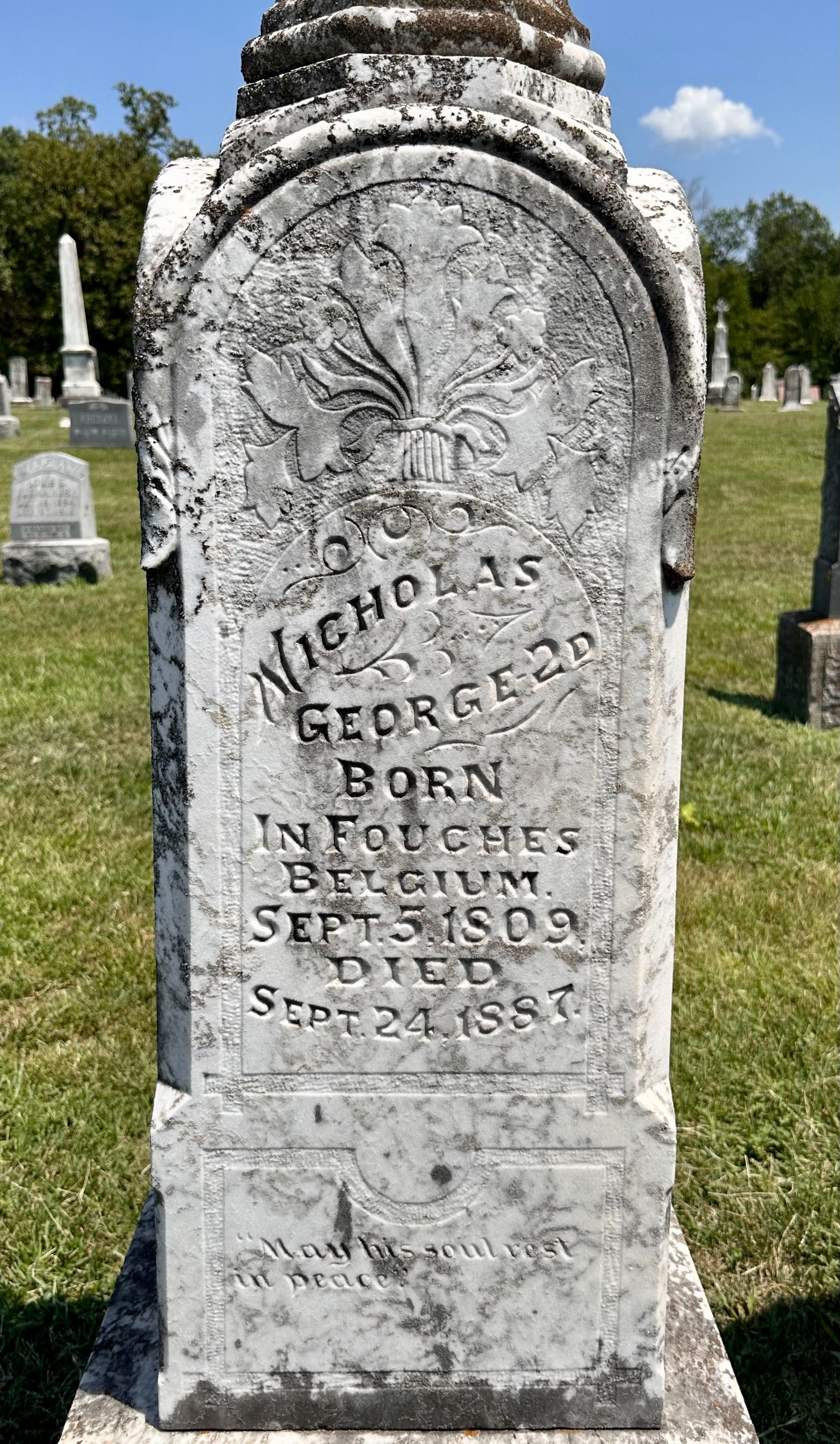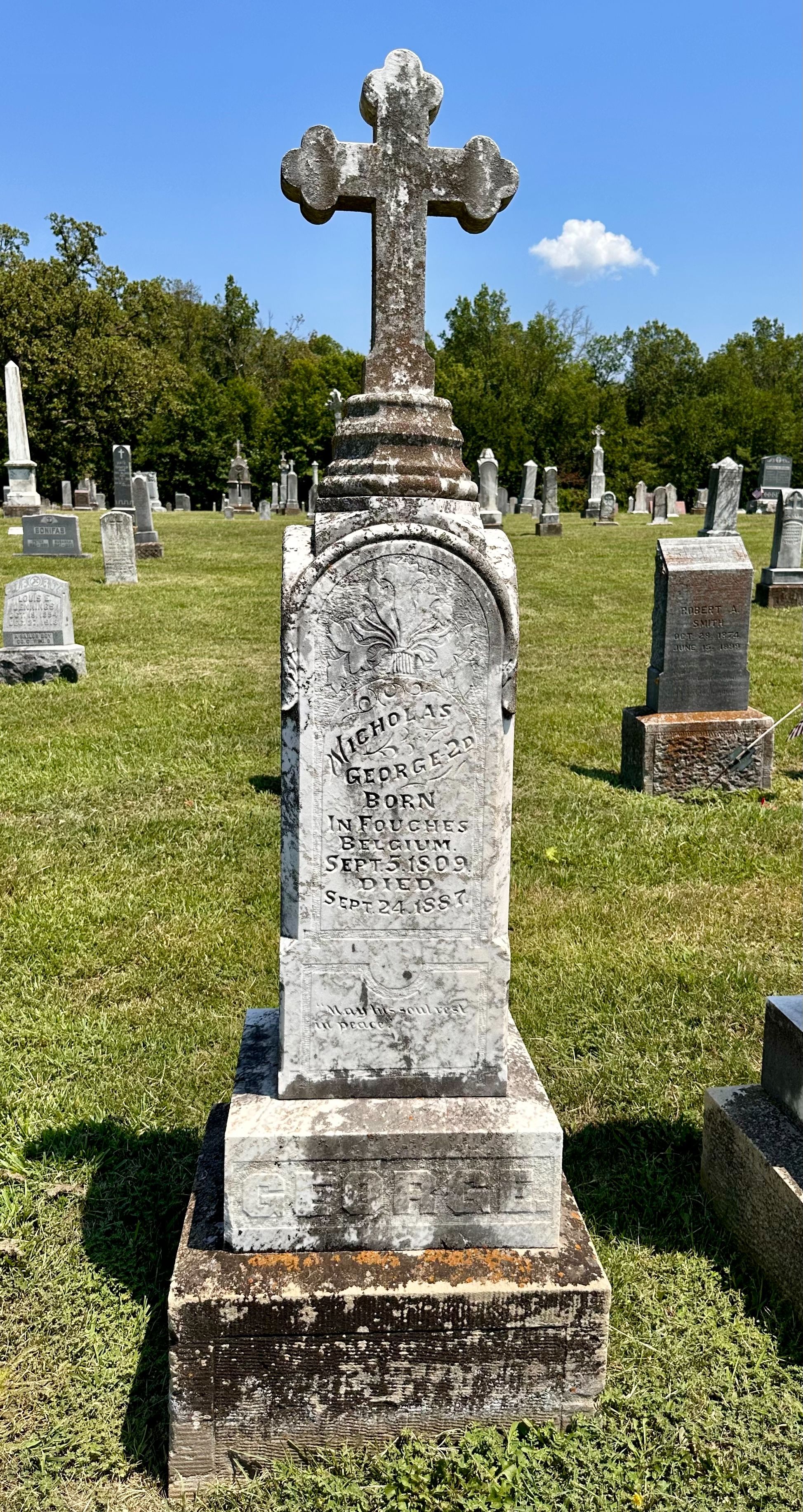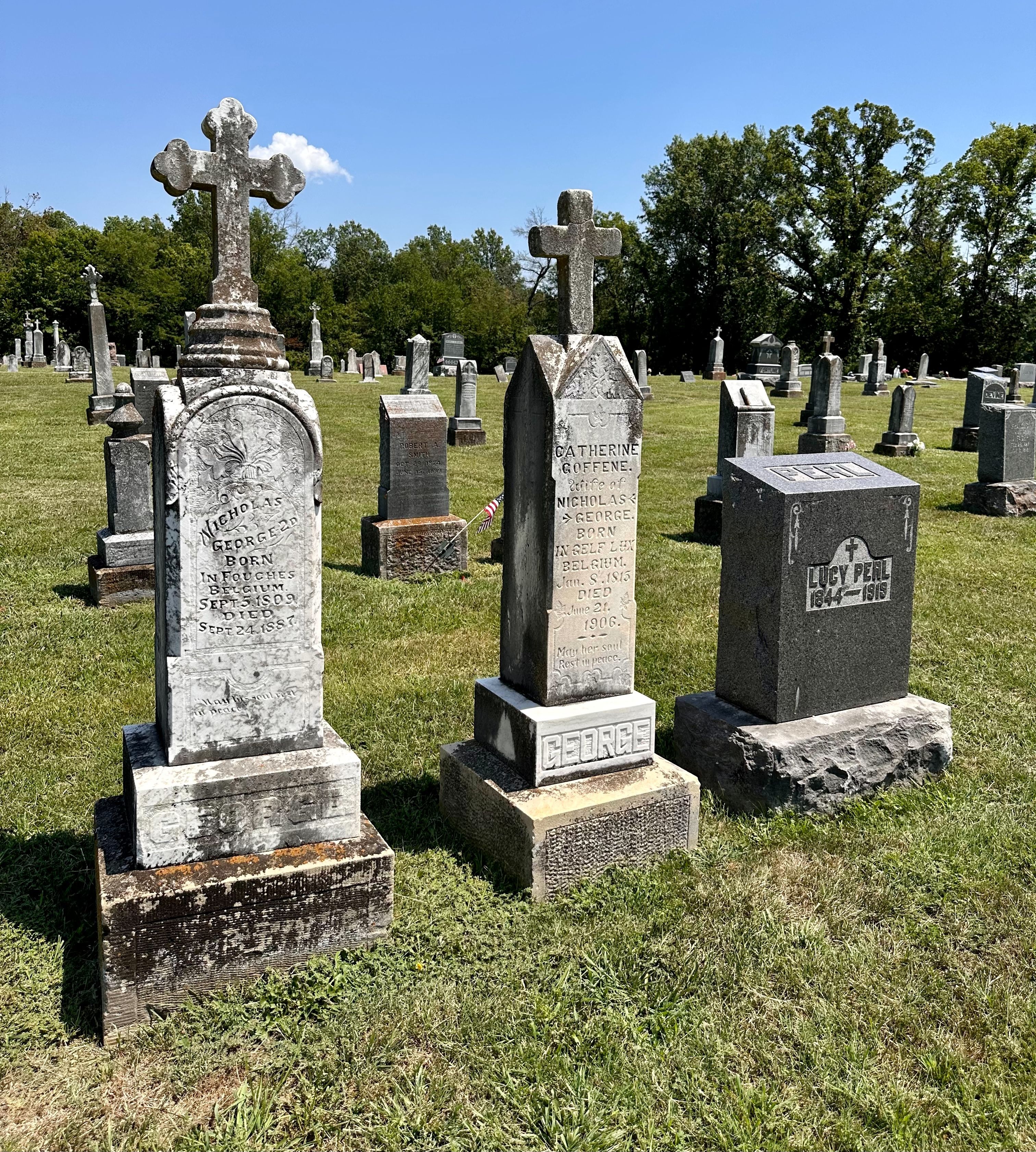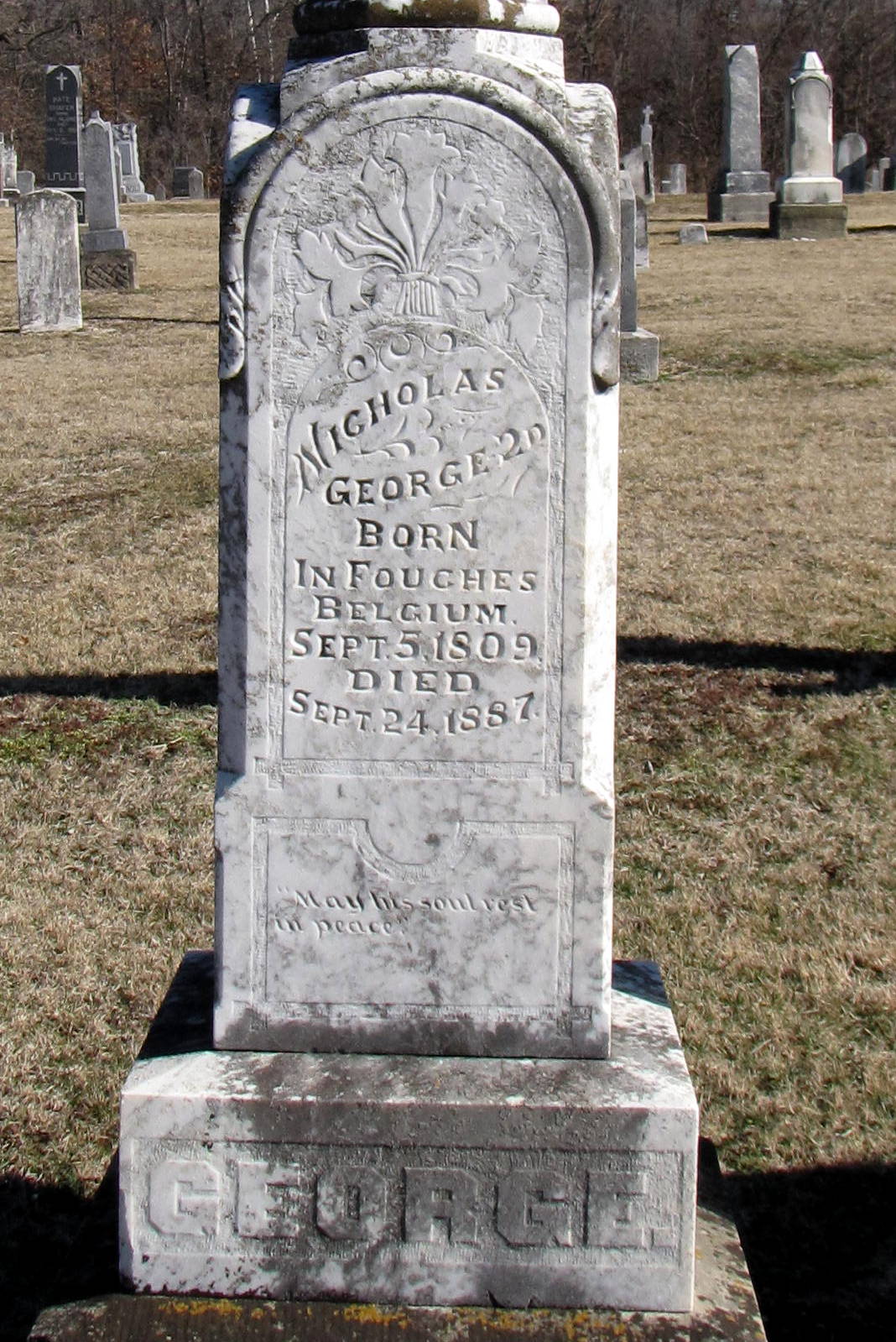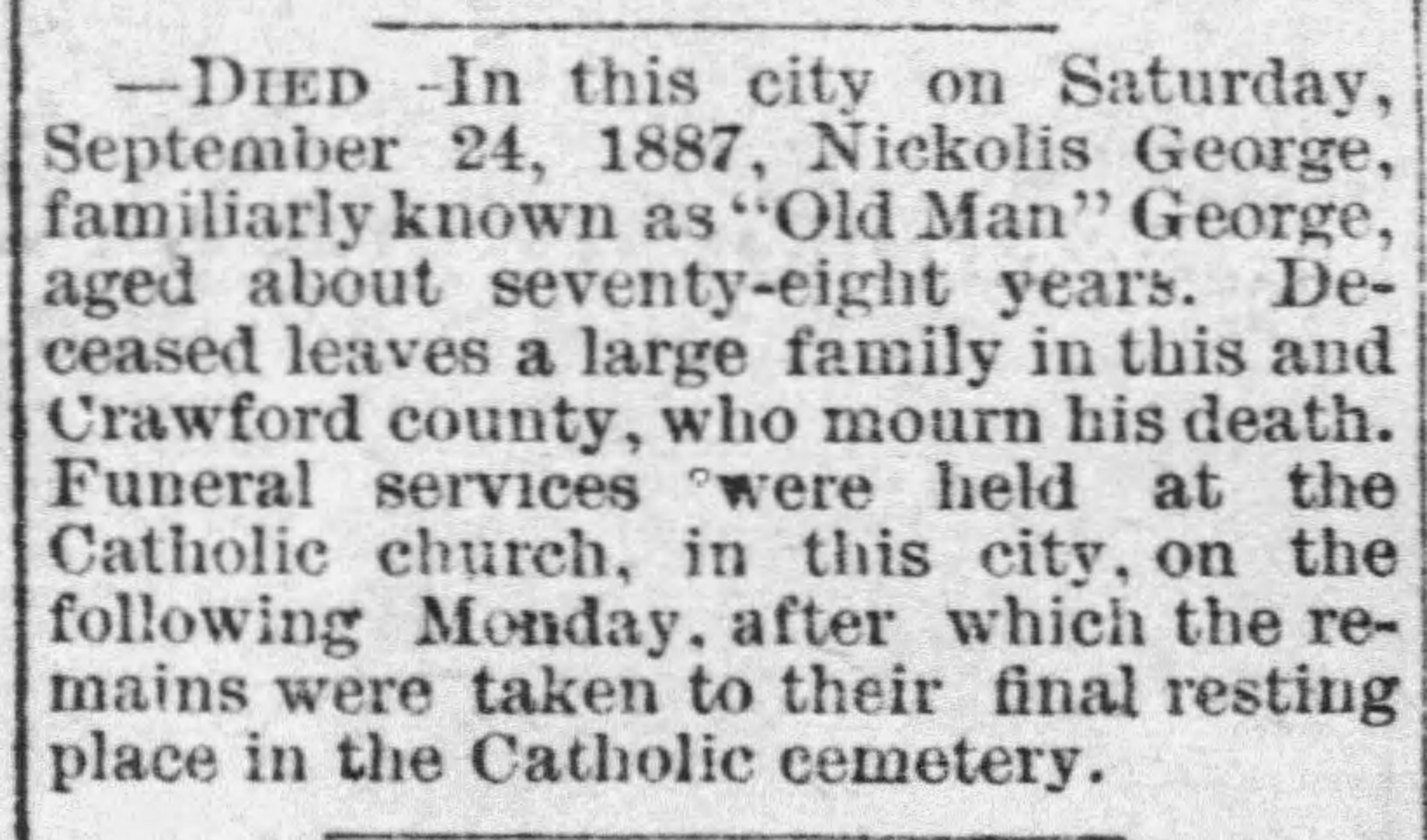Fouches, Belgium. Died 1861 Fouches, Offen, Belgium. Mother: Margaret Bintz b 2 Nov 1780 Fouches, Belgium. d 13 Feb 1852 Fouches. Married 22 Jan 1805 Fouches.
Nick died in what was then Osage Mission, Kansas.
He was born in the village of Fouches, at the time in the Grand Duchy of Luxembourg. The region was annexed by the Kingdom of Belgium in 1839, two years after Nick had left for America.
Amandus was baptized in Hachy, which at the time had the only church around. At the time, the area was part of the Grand Duchy of Luxembourg, not of France.
Fouches and Hachy are nearby each other, but they are and always have been separate villages. They are the largest of three distinct villages that constitute a forest community near the small river Semois. The third and smallest of the villages is Sampont.
And to sort out some seeming confusion about names and times...
In 1797 Napoleon annexed the entire Grand Duchy of Luxembourg to France, renaming it the Department of Forests. After Napoleon's fall in 1815, the Grand Duchy was restored. In 1839, it was partitioned in the treaty that formed the Kingdom of Belgium. The western two-thirds of Luxembourg was taken by Belgium, where it became the Belgian province of Luxembourg.
To be technical about it, both Nick and wife Catherine (as well as many others) were born during the 18-year period when their homeland was considered to be a part of France, rather than a part of the Austrian-Hungarian Empire as it had been before Napoleon ran off the Austrian army in 1797. But I think you'll agree that such detail is too much.
Fouches and Offen are words from different languages used to identify the same village, now commonly referred to in the French as Fouches. Offen is a word from the German Letziburgish dialect that had been the common language of the entire region for centuries prior to the initial introduction of French during the Napoleonic era. The word means "oven" in English. Many residents of the area still speak the German dialect as a second language, although French is the official language of southern (Walloon) Belgium and Flemish is the language of northern Belgium. The dialect was the language of all but the last of the immigrant Georges in the 19th century, and it was spoken through the first two American-born generations of the family.
But of interest about the Perl name... This family line came from the village of Perl, still in Luxembourg just east of its border with Belgium. Some, however, changed the spelling to Purl after immigrating and, if memory serves, I think you'll find Nick and Catherine's daughter, Lucy, buried as Lucy Purl in a grave alongside their's in St. Paul.
Bio by Jack George Brannan
Fouches, Belgium. Died 1861 Fouches, Offen, Belgium. Mother: Margaret Bintz b 2 Nov 1780 Fouches, Belgium. d 13 Feb 1852 Fouches. Married 22 Jan 1805 Fouches.
Nick died in what was then Osage Mission, Kansas.
He was born in the village of Fouches, at the time in the Grand Duchy of Luxembourg. The region was annexed by the Kingdom of Belgium in 1839, two years after Nick had left for America.
Amandus was baptized in Hachy, which at the time had the only church around. At the time, the area was part of the Grand Duchy of Luxembourg, not of France.
Fouches and Hachy are nearby each other, but they are and always have been separate villages. They are the largest of three distinct villages that constitute a forest community near the small river Semois. The third and smallest of the villages is Sampont.
And to sort out some seeming confusion about names and times...
In 1797 Napoleon annexed the entire Grand Duchy of Luxembourg to France, renaming it the Department of Forests. After Napoleon's fall in 1815, the Grand Duchy was restored. In 1839, it was partitioned in the treaty that formed the Kingdom of Belgium. The western two-thirds of Luxembourg was taken by Belgium, where it became the Belgian province of Luxembourg.
To be technical about it, both Nick and wife Catherine (as well as many others) were born during the 18-year period when their homeland was considered to be a part of France, rather than a part of the Austrian-Hungarian Empire as it had been before Napoleon ran off the Austrian army in 1797. But I think you'll agree that such detail is too much.
Fouches and Offen are words from different languages used to identify the same village, now commonly referred to in the French as Fouches. Offen is a word from the German Letziburgish dialect that had been the common language of the entire region for centuries prior to the initial introduction of French during the Napoleonic era. The word means "oven" in English. Many residents of the area still speak the German dialect as a second language, although French is the official language of southern (Walloon) Belgium and Flemish is the language of northern Belgium. The dialect was the language of all but the last of the immigrant Georges in the 19th century, and it was spoken through the first two American-born generations of the family.
But of interest about the Perl name... This family line came from the village of Perl, still in Luxembourg just east of its border with Belgium. Some, however, changed the spelling to Purl after immigrating and, if memory serves, I think you'll find Nick and Catherine's daughter, Lucy, buried as Lucy Purl in a grave alongside their's in St. Paul.
Bio by Jack George Brannan
Family Members
-
![]()
Katharina George Brill
1841–1913
-
![]()
Nicolas Amos George
1843–1897
-
![]()
Lucy Lucia George Perl
1844–1919
-
![]()
John Nicholas George
1847–1924
-
![]()
Michael L George
1848–1921
-
![]()
Peter K. George
1848–1929
-
![]()
Leopold George
1850–1950
-
![]()
Clara Maria George Smith
1853–1933
-
![]()
Mary George End
1855–1937
-
![]()
Francis Xavier "Frank" George
1860–1865
Advertisement
Explore more
Sponsored by Ancestry
Advertisement
